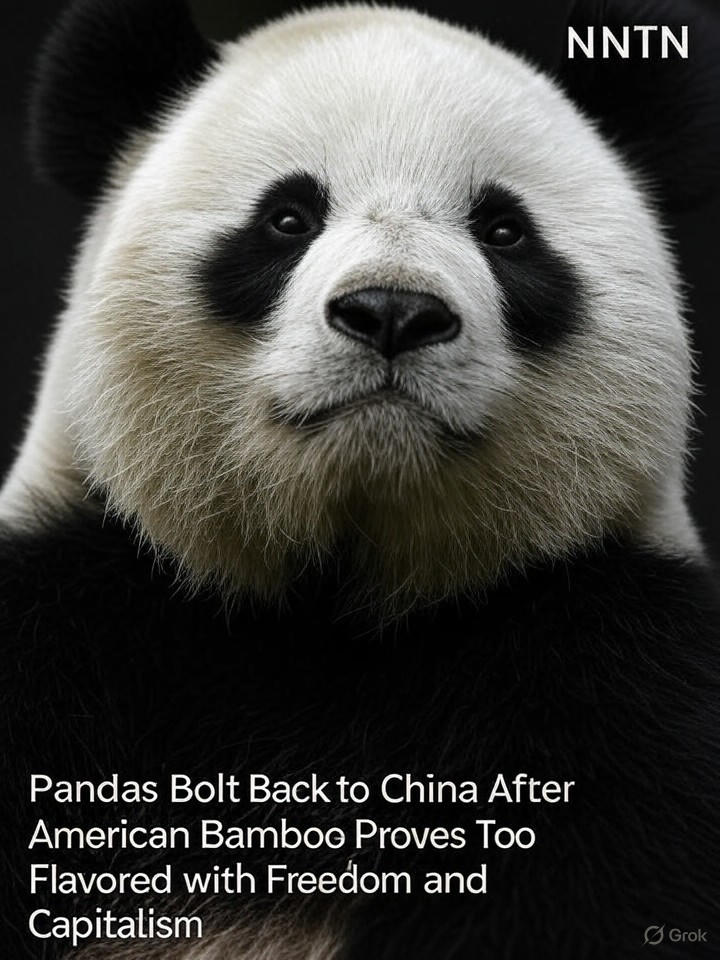WASHINGTON, D.C. – In what experts are calling the most bamboozling diplomatic incident since the ping-pong diplomacy era, a cadre of giant pandas loaned to American zoos have staged a mass exodus back to their homeland. Sources close to the cuddly diplomats report that the pandas, after years of munching on U.S.-grown bamboo, have developed an acute allergy to its unmistakable aftertaste of freedom and unbridled capitalism.
The trouble began innocently enough at the National Zoo, where Mei Xiang and her family were observed turning up their black-and-white noses at their daily bamboo rations. "It started with a slight gag reflex," said zookeeper Dr. Flora Fauna. "Then they began writing protest signs in panda-ese, demanding 'Bamboo Without Borders' or something like that. We thought it was cute until they started chewing through the fences."
Insiders reveal that the American bamboo, fertilized with the tears of small business owners and irrigated by the sweat of entrepreneurs, imparts a flavor profile that's equal parts apple pie and stock market volatility. "It's like eating a Big Mac wrapped in the Declaration of Independence," grumbled one panda through a translator app. "We came for the bamboo, not a side of manifest destiny."
Chinese officials, ever the opportunists, have welcomed the furry defectors with open arms and endless supplies of state-subsidized shoots. "Our bamboo is pure, unadulterated, and government-approved," boasted a spokesperson from the Panda Preservation Bureau. "No hidden flavors of individualism here – just good old collective crunch."
Meanwhile, American panda enthusiasts are left scratching their heads and wondering if this spells doom for international wildlife exchanges. "If pandas can't handle our freedom-flavored flora, what hope is there for koalas or kangaroos?" pondered Senator Chuck Grassley during a heated congressional hearing on the matter.
In a bizarre twist, some pandas have reportedly smuggled back samples of the contentious bamboo, sparking underground 'freedom feasts' in Chinese black markets. Authorities are cracking down, but whispers of a panda rebellion – fueled by capitalist cravings – are already circulating.
As the dust settles, one thing is clear: in the world of international relations, even something as simple as a panda's lunch can become a battleground for ideological supremacy. Will the pandas adapt, or will they forever pine for plainer pastures? Only time, and perhaps a trade deal, will tell.

